
COLUMBUS, Ohio (BP) — The 2015 Southern Baptist Convention Pastors’ Conference’s afternoon and evening sessions June 15 continued on the theme of “He Must Increase” from John 3:30.
The June 14-15 Pastors’ Conference sessions in the Greater Columbus Convention Center led into the June 16-17 Southern Baptist Convention annual meeting.
John Meador of the First Baptist Church in Euless, Texas, was elected as next year’s Pastors’ Conference president, along with Neil Franks of First Baptist Church in Branson, Mo., as vice president and Glynn Stone of Mobberly Baptist Church in Longview, Texas, as treasurer.
Six speakers addressed the conference’s two concluding sessions, challenging Southern Baptist pastors to emulate John the Baptist’s charge to decrease so that Jesus Christ might increase.
Clint Pressley
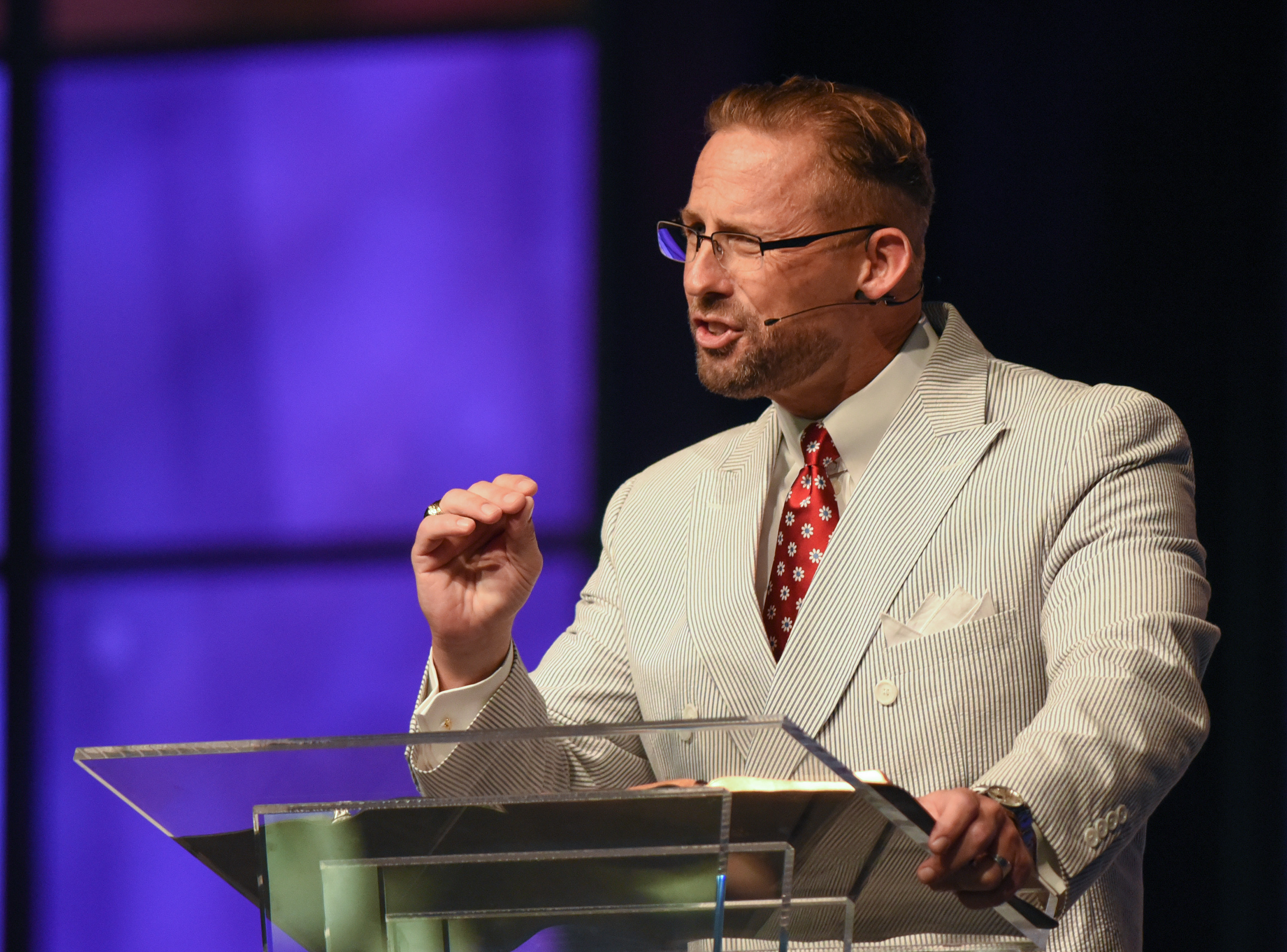 “God takes what seems impossible, and He makes it a reality,” said Clint Pressley, senior pastor of Hickory Grove Baptist Church in Charlotte, N.C., and first vice president of the Southern Baptist Convention.
“God takes what seems impossible, and He makes it a reality,” said Clint Pressley, senior pastor of Hickory Grove Baptist Church in Charlotte, N.C., and first vice president of the Southern Baptist Convention.
Pressley preached from Ezekiel 37:1-10 and encouraged pastors to not be fearful of desperate situations.
“Don’t be afraid, brothers and sisters, if God calls you into the valley of the dry bones,” Pressley said. “You stand there with the Word of God; you preach the Word of God and beg the Spirit to come give life.”
Pressley focused on allowing God to work through the power of the Holy Spirit. “Do you believe that it is God doing the work or you doing the work?” he asked. “The conversion of our people, the strength of the church and the power for our ministry cannot come from the flesh; it comes from the Spirit.”
He challenged the audience to pursue God’s definition of success by fully obeying Christ.
“Don’t be afraid to walk into something that doesn’t make sense to anybody but you and the Lord,” Pressley said.
H.B. Charles
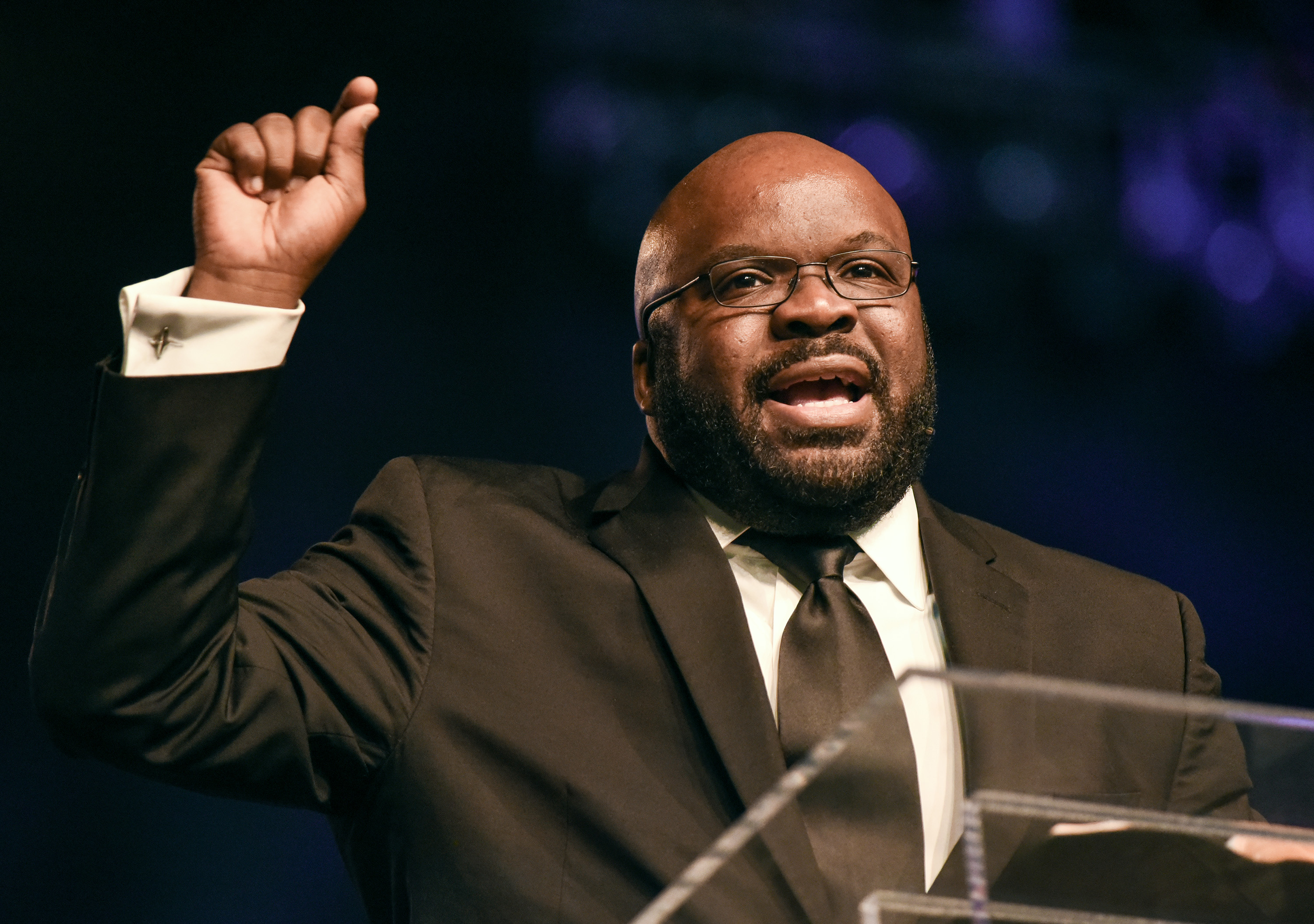 Preaching on “The Changeless Christ” from Hebrews 13:18, H.B. Charles, pastor of the Shiloh Metropolitan Baptist Church in Jacksonville, Fla., declared, “Jesus Christ is the same yesterday, today and tomorrow.”
Preaching on “The Changeless Christ” from Hebrews 13:18, H.B. Charles, pastor of the Shiloh Metropolitan Baptist Church in Jacksonville, Fla., declared, “Jesus Christ is the same yesterday, today and tomorrow.”
While leaders come and go and rise and fall, Jesus Christ is the same, Charles said. And while preachers come and go, “preaching must remain gloriously monotonous. You don’t need new truths when you have the same Christ.”
No matter changing circumstances or the way that the wind blows, “you can face the changing culture with faith in the changeless Christ,” Charles said.
The name “Jesus” reflects His humanity, Charles said, and “Christ” is His divine office that is found in His exclusivity, Charles said. “He is able to sustain our faith, our witness, our ministry because He is the same yesterday, today and tomorrow.
“Jesus is heaven’s wonder. Jesus is hell’s worry. Jesus is humanity’s way out of sin, guilt, shame, death and hell.”
Jesus is immutable, sufficient and divine, and demonstrates every good and perfect gift from the Father, Charles added.
“Whatever you are going through, whatever your days may bring, you can always count on Jesus Christ because of His matchless name, His exclusivity claim and the unwavering faithfulness of Jesus Christ,” Charles said.
Steve Gaines
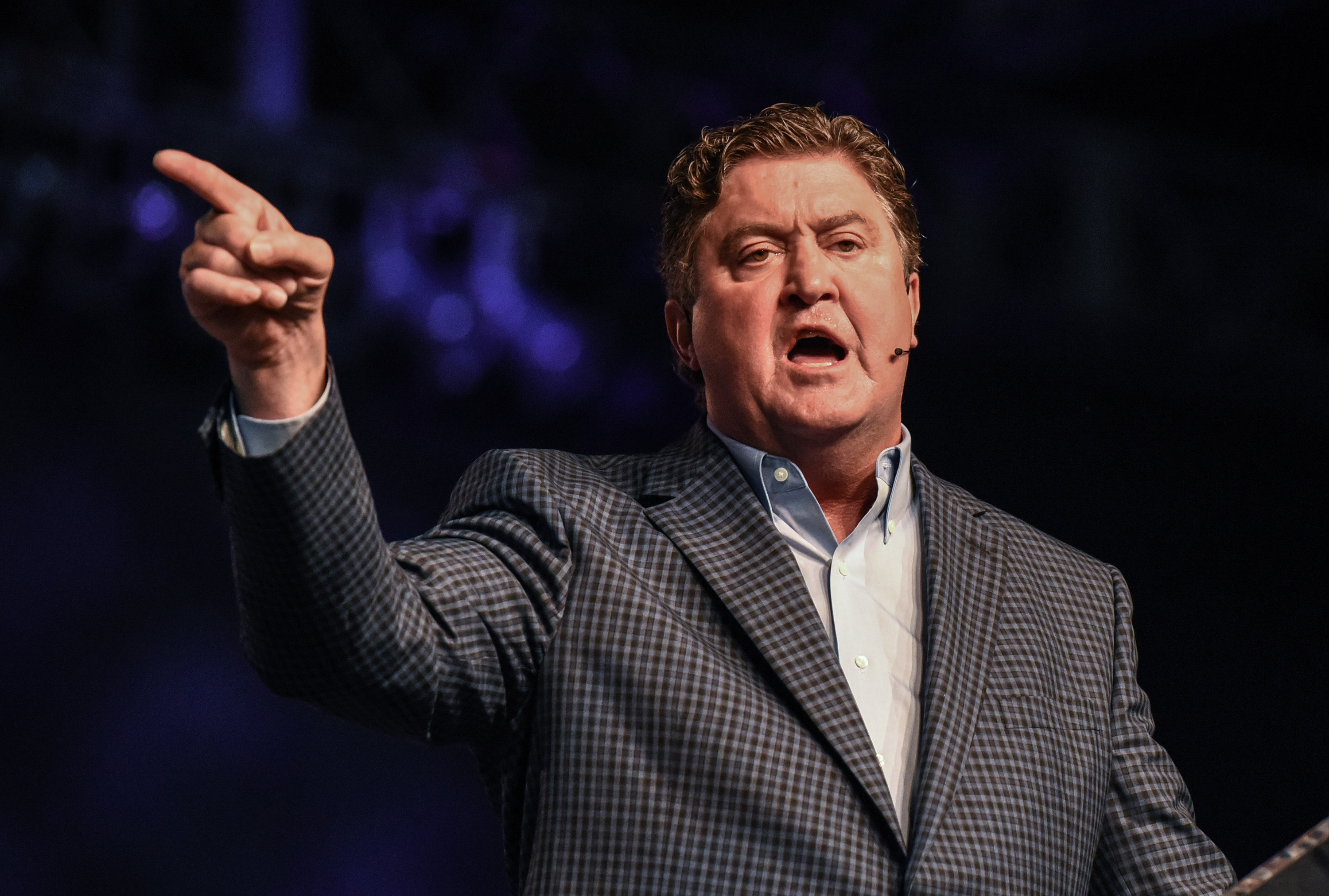 Pastors must pray with fervency, faith and forgiveness if their ministry is to follow the model for biblical revival, said Steve Gaines, pastor of Bellevue Baptist Church in Cordova, Tenn., and a former president of the Pastors’ Conference.
Pastors must pray with fervency, faith and forgiveness if their ministry is to follow the model for biblical revival, said Steve Gaines, pastor of Bellevue Baptist Church in Cordova, Tenn., and a former president of the Pastors’ Conference.
“The difference between us and the early church is that we don’t pray like they prayed,” Gaines said.
Preaching from Mark 11:22-25 when Jesus told His disciples how to move mountains through prayer, Gaines lamented how some movements like Word of Faith have abused this passage with a “name it and claim it” mantra. Instead, Gaines said, pastors should follow the example of men like 16th-century Scottish minister John Knox and risk their lives to pray for revival.
“If we want God to birth a revival, we must labor in fervent prayer,” Gaines said.
In addition to fervency, Gaines said pastors should learn to pray with faith and forgiveness. Faith, Gaines said, is placing trust and dependency in God and His promises. And prayer will not be effective, he said, unless believers first forgive those who have wronged them. Closing with the “Parable of the Unforgiving Debtor,” Gaines encouraged attendees to seek out those who have hurt them and forgive them in Jesus’ name.
J.D. Greear
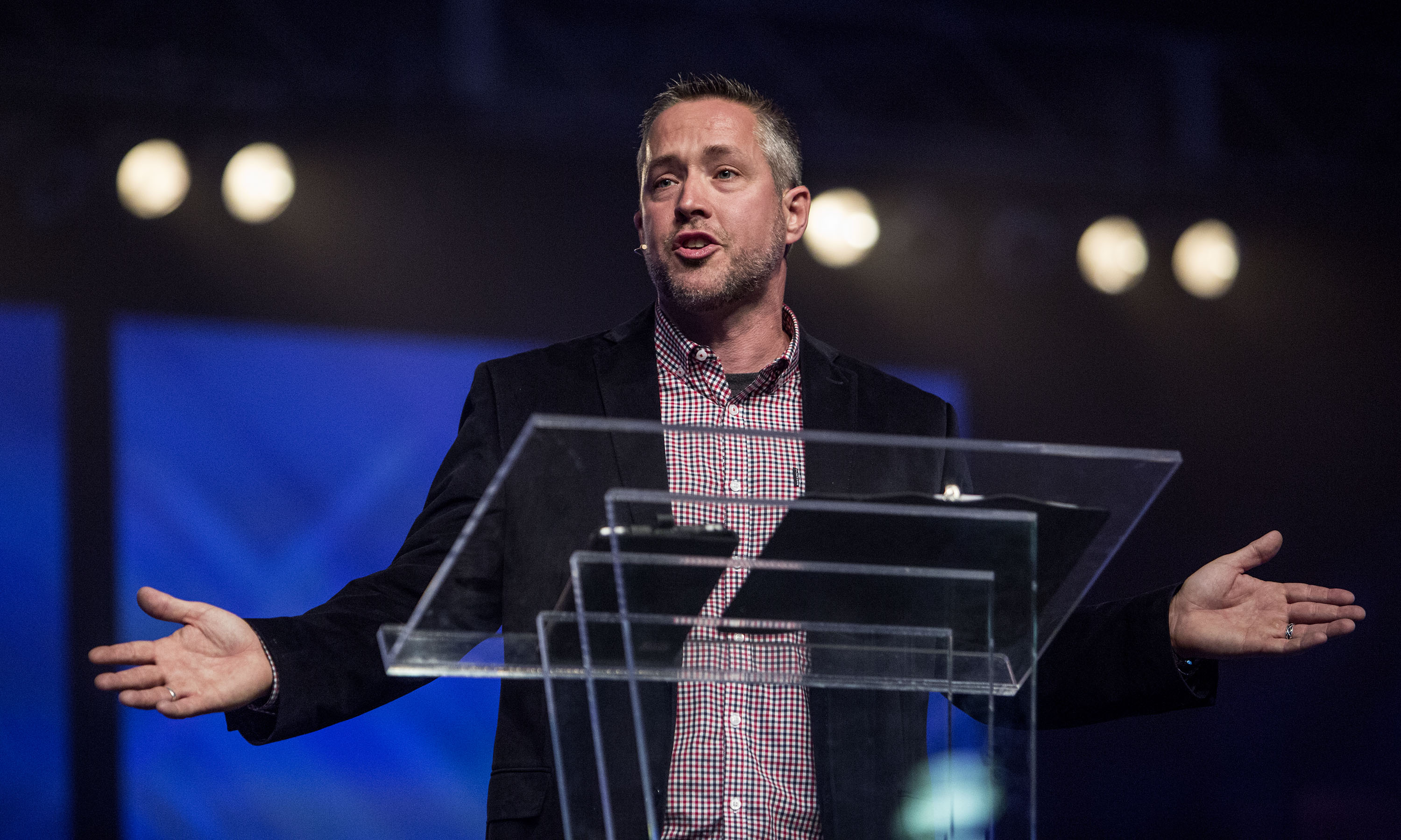 J.D. Greear, pastor of The Summit Church in Raleigh-Durham, N.C., offered insight into the realities of preaching in the midst of today’s “seismic cultural revolution.”
J.D. Greear, pastor of The Summit Church in Raleigh-Durham, N.C., offered insight into the realities of preaching in the midst of today’s “seismic cultural revolution.”
Greear challenged pastors to distinguish the difference between judging and speaking truth to others, drawing from Jesus’ words in Matthew 7:1-6.
“He [Jesus] spent His whole ministry telling people they were in error,” Greear said. “It cannot mean that you don’t tell people they are wrong.”
Greear used the example of those who practice gay and lesbian lifestyles, calling the audience to address the topic from a Christ-centered perspective.
“When we push someone away after speaking truth, we have failed to represent our Savior,” Greear said. “How can you ever say to someone ‘depart from me’ when Jesus would not say it to us?”
Passing judgment on someone “reflects the extreme ignorance of our own sinfulness,” he said, pointing to John 3:16 and Jesus as a friend of sinners.
“If we are not clear with the way to eternal life, we are not speaking out and warning when we have been commissioned to warn,” Greear said. “The very existence of the church is at stake.”
James MacDonald
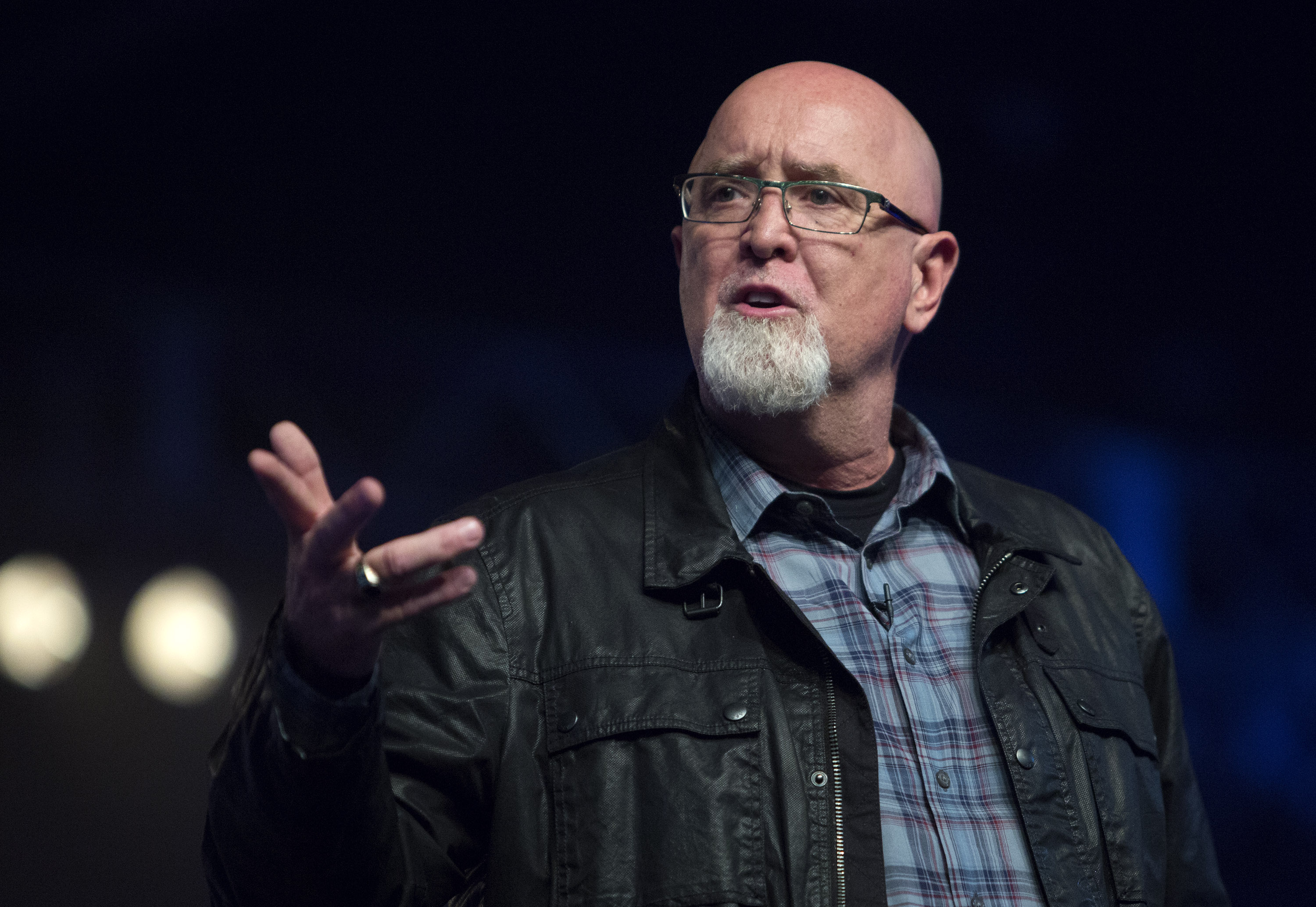 James MacDonald, pastor of Harvest Bible Church in Chicago — who announced that the church had recently voted to join the Southern Baptist Convention — explained to Pastors’ Conference attendees that when one is enduring a particular trial in ministry that “you can’t do what you want” but must “humble yourself.”
James MacDonald, pastor of Harvest Bible Church in Chicago — who announced that the church had recently voted to join the Southern Baptist Convention — explained to Pastors’ Conference attendees that when one is enduring a particular trial in ministry that “you can’t do what you want” but must “humble yourself.”
Drawing from John 13:1-16, MacDonald portrayed Jesus’ example of humbling Himself before the disciples on the eve of His greatest trial. In light of this, regardless of “when it’s hardest to love,” “when it’s personal and painful,” “when you endure injustices,” one should “humble yourself.”
MacDonald further noted that the act of humbling oneself is an action, not a concept, and it requires servanthood.
Like the servant and messenger depicted in verse 16, MacDonald said, “I am the servant. I am the messenger, and I am nothing…. I deserve nothing…. The messenger is nothing; the message is everything. And if you get ahold of ‘I am nothing,’ the message is everything. I am sent, but it is about the Sender…. Only God is great; humble yourself…. It’s okay if we decrease … so that He [Jesus] could increase.”
David Platt
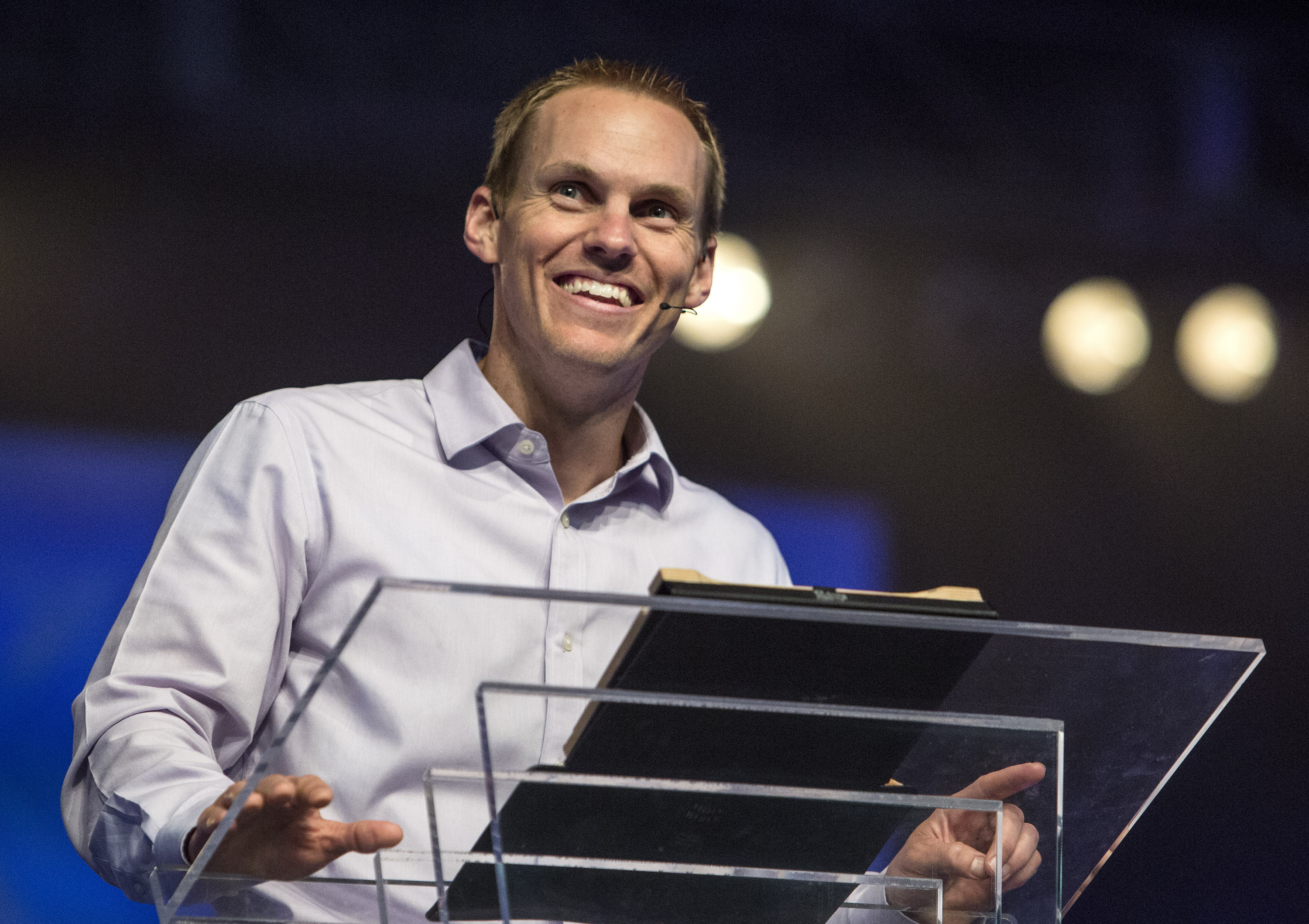 International Mission Board President David Platt, in the closing message of the conference, brought a word of encouragement to attendees facing attacks on the church from all sides in culture or challenges in family, marriage or life.
International Mission Board President David Platt, in the closing message of the conference, brought a word of encouragement to attendees facing attacks on the church from all sides in culture or challenges in family, marriage or life.
Speaking from Revelation 1, Platt said, “John gives us what is quite possibly the most majestic portrait of Jesus ever penned on paper. It’s as if the Holy Spirit was saying to a struggling church in the first century, ‘Look to Christ! Just look to Christ!’ So on this night, at the close of this Pastors’ Conference before this convention begins, I’m assuming that some — maybe many — of the pastors and wives in this room are discouraged or disheartened, struggling in some way in your life or in your family or in your church, and I’m convinced the Holy Spirit is saying to us all across this room: ‘Look to Christ! Just look — look to Christ!'”
Pastors and the churches in the convention “are a family of brothers and sisters” at “one big family reunion … with all that family reunions entail,” Platt said. This family, he said, is also an army engaged in a costly battle to share the Gospel of Christ. The more aggressively Christians take the Gospel into other cultures, the more forcefully the adversary will stand his ground, Platt said, because going to the unreached means going to people who are unreached for a reason: They’re hard to reach. They’re difficult to reach. They’re dangerous to reach.
The Revelation 1 passage also gives a detailed account of who Christ is, Platt noted. He asked participants to turn their attention and affection to 16 characteristics of Jesus Christ: Jesus is a man. He is God. He is the fulfillment of prophecy (Daniel 7, Daniel 10). He is the final high priest. He is infinitely old. He is infinitely wise. He has knowledge of all things. He is holy above all things. His voice resounds with authority. His face radiates with light. He had the first word in creation. He will have the last word in creation. He was dead … for a time. He is alive for all time. Death is controlled by Him. And no one — or nothing — compares to Him.
“As long as this Christ is in the middle of His people, then nothing, no matter how fierce, can or ever will destroy them,” Platt said. “Nothing. Indestructible. Hear this word, struggling pastor. Hear this word, hurting pastor’s wife. Hear this word, discouraged/disheartened/doubting brother or sister for whom faith is hard to find some days. Hear this word, church in the midst of a hostile culture. Hear this word, church on mission to foreign cultures: Jesus is present among us! Jesus! See Him! … This indescribable Christ is in our midst right now! … Jesus is not distant from us. Jesus is not just over us. He is here with us!”
Jesus possesses and protects His people, Platt said, noting, “No matter how great the struggle or how glaring the weakness, no matter how rough the road or how profound the pain, no matter how serious the threat or steep the trial, no matter what this world and all the spiritual forces of evil in it throw at you, know this: Jesus Christ on high has got your back.” Such truth calls Christians to fall down before Jesus in worship and to rise up as witnesses. The best news, Platt said, comes 21 chapters later in Revelation 22:4 — that one day, Jesus’ followers will see His face, and one day every knee will bow and every tongue will confess that Jesus Christ is Lord, to the glory of God the Father.
















